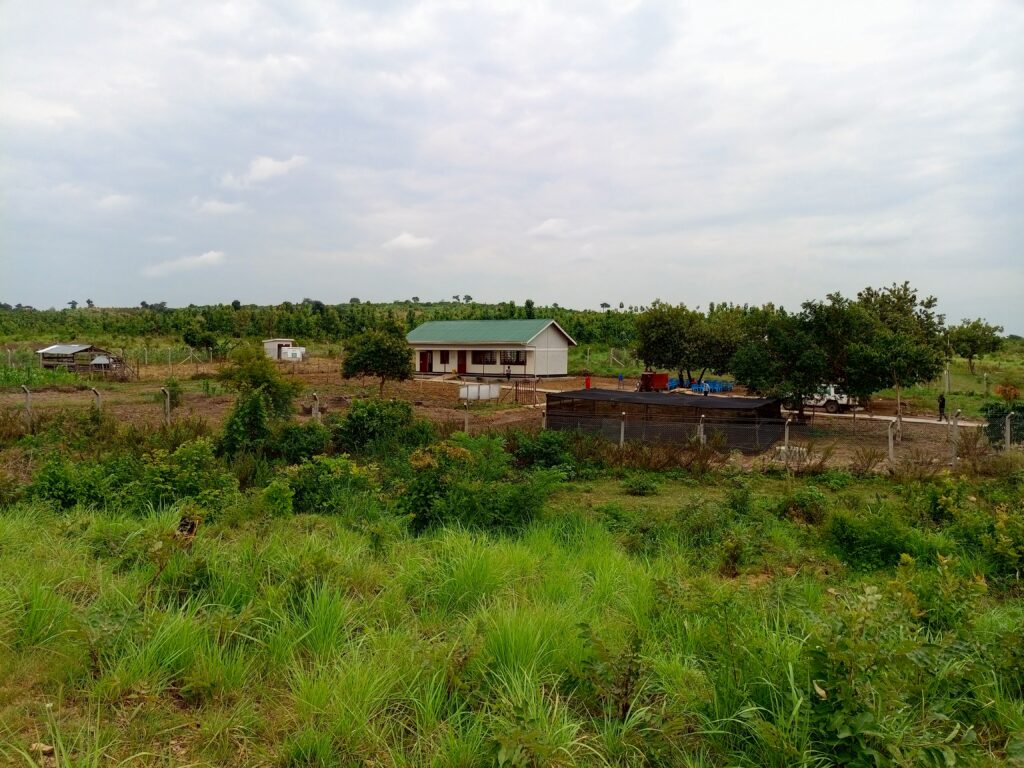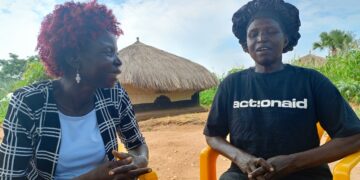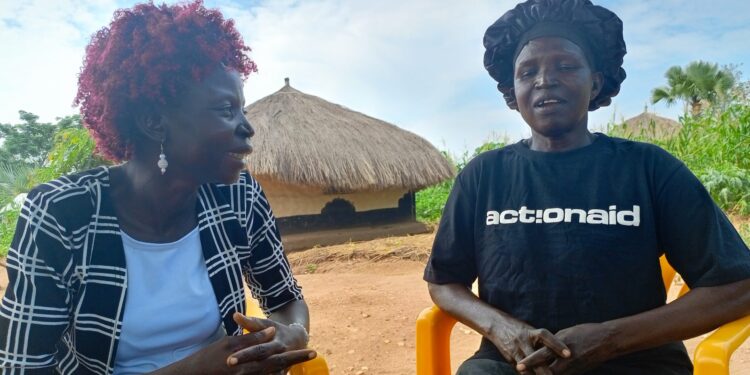Terego District — In a quiet garden behind modest grass-thatched huts in Imvepi Refugee Settlement, flowering maize plants sway gently in the West Nile breeze. To most, it’s just another kitchen garden.
But to Suya Susan and Betty Tabu, two South Sudanese women, this patch of soil represents healing, dignity, and a fresh start.
Their journey from the horror of war in South Sudan to the resilience of rebuilding is emblematic of what the newly launched Shs160m Loketa Women and Girls’ Safe Space by ActionAid International Uganda has made possible for over 105 women and girls, and counting.
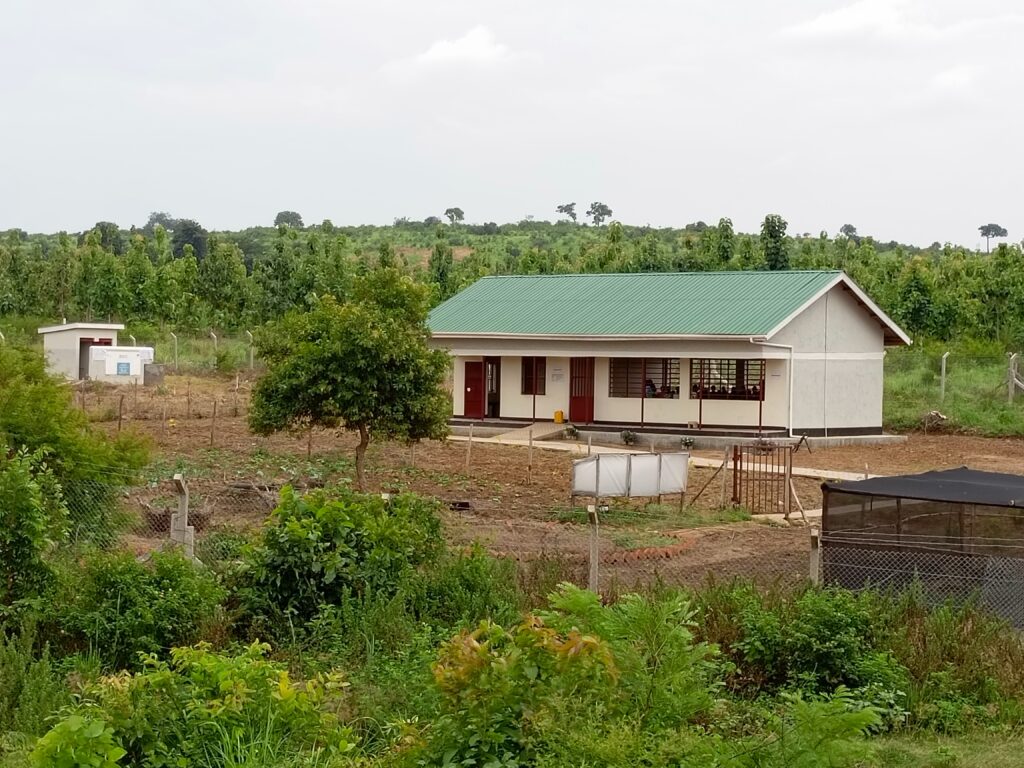
From Trauma to Transformation
Suya Susan, now 35, fled Juba City in 2016 after witnessing the brutal killing of her cousin and enduring weeks without water, safety, or peace of mind. When she arrived in Uganda, she was traumatised and empty-handed — but not alone. With four children of her own and seven orphans in her care, survival was her only priority. The family has since grown to 16 members.
Her breakthrough came when community social workers introduced her to the safe space run by ActionAid. “They told us there was a place where women could speak and be heard, where we could heal,” she recalls. “That place changed my life.”
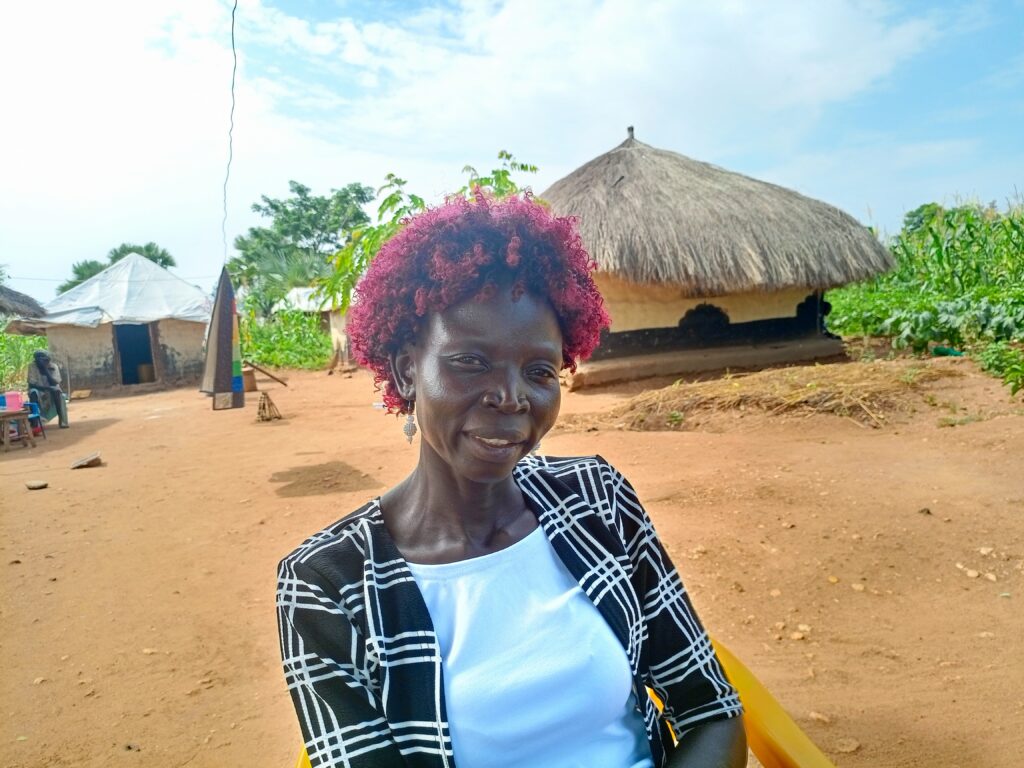
There, she accessed counselling for trauma, learned how to make mandazi (fried bread), and picked up tailoring skills. She now earns a living to care for her family and educate her daughter in a good school in Arua town.
“I remember my daughter once said, ‘Mum, I will stop school to help you at home.’ I said, ‘No, I will make sure you stay in school.’ And I did.”
Through her income from selling mandazi and bed sheets, Suya kept her daughter in school, who is now in Primary Seven. As competition increased in the baking business, she pivoted, selling second-hand clothes and handbags, all inspired by her training at the safe space.
“Initially, mandazi-making was very profitable because few people were doing it — sometimes I earned up to UGX 80,000 per day. But today, competition has increased. So, I’ve started diversifying my business. Now I’m selling second-hand clothes, coats, and handbags.“
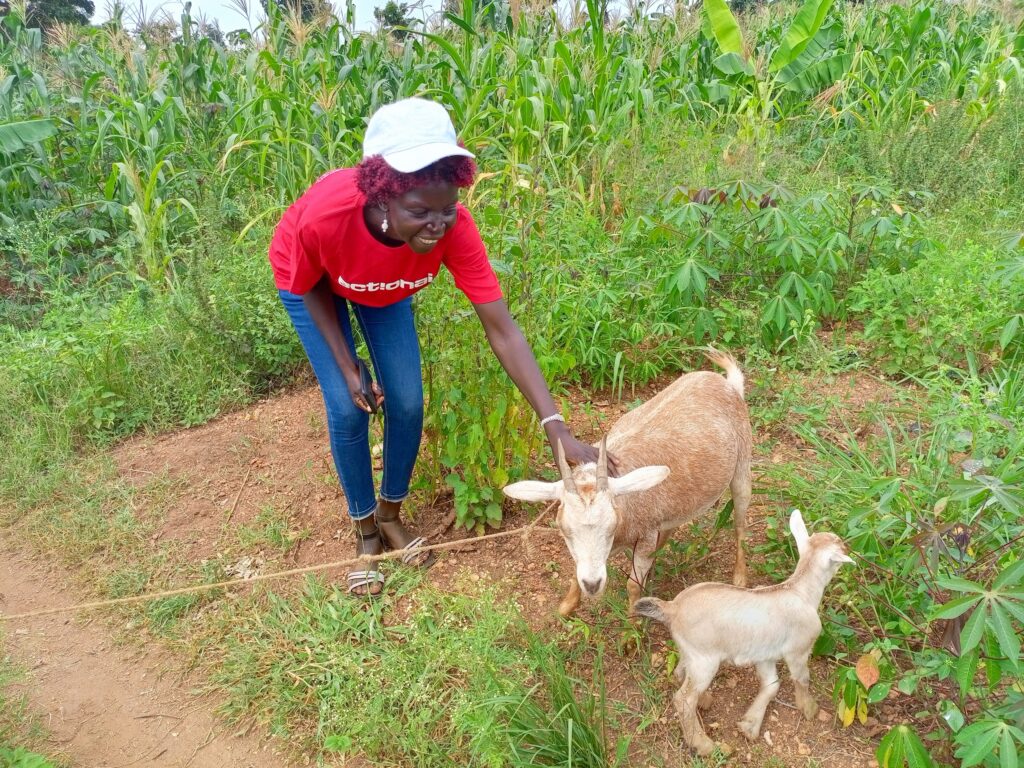
Growing Resilience Through Agroecology
Alongside the psychosocial support and skilling programmes is the Loketa Agroecology Centre, an integrated garden training project designed to combat economic violence and food insecurity. This is where both Suya and Betty Tabu, 41, found another kind of therapy — growing life from the soil.
Tabu arrived in Uganda in 2017 after her brother was killed in Yei County, South Sudan. The trauma, she says, was overwhelming. But like Suya, she was introduced to the safe space by International Rescue Committee (IRC) social workers.
“I was traumatised — still dealing with the pain of losing my brother — but at the centre, I received counselling and psychosocial support. The team listened to me and guided me toward healing.”
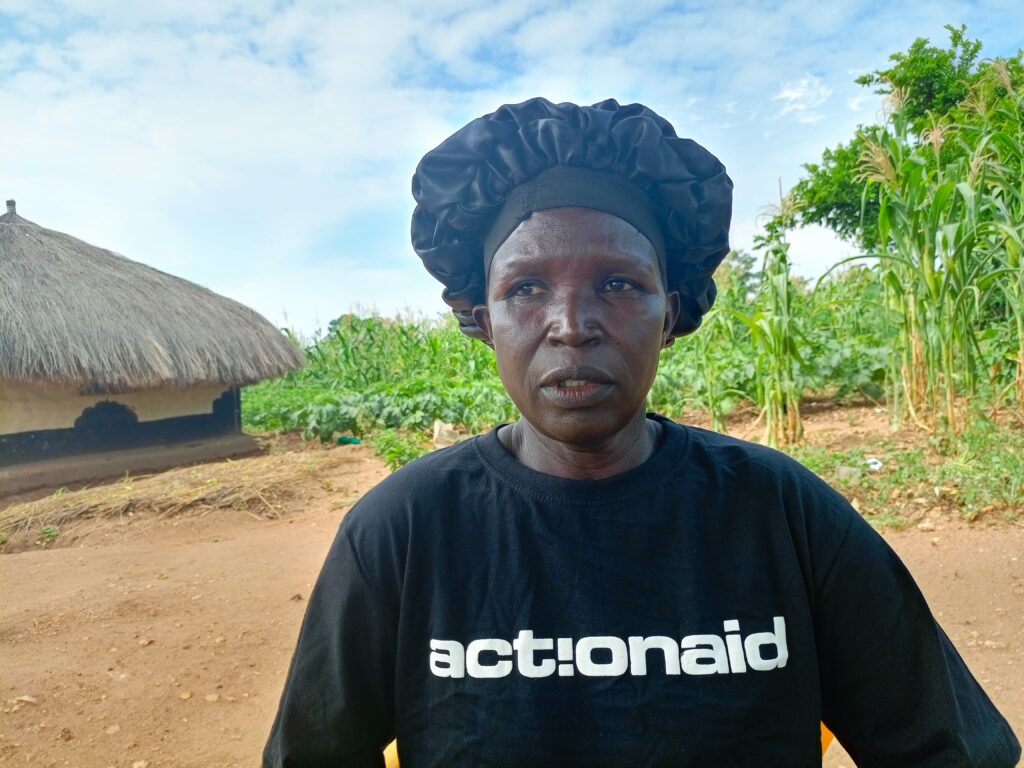
There, she also acquired skills training in baking and tailoring, and eventually, empowerment. “I make school uniforms at home now,” Tabu explains. “I pay school fees. I feed my children from my garden. I’m no longer thinking about the past — I’m focused on tomorrow.”
Tabu has a family of 12. Thanks to the agroecology centre, Tabu has been able to grow vegetables, bananas and pawpaws to feed her family. “I didn’t know how to farm,” says Tabu. “But now I grow vegetables, bananas, pawpaws — instead of buying food from the market, I’m the one selling to them my harvest.”
Today, I no longer dwell on the hardship of South Sudan. The trauma is healing, and I am self-reliant. I no longer think about returning — I am now a resilient woman, focused on building a better life for my children and myself here in Uganda.
Suya, on the other hand, says the centre has also taught them the importance of planting trees. “To me, agroecology means planting trees. In our group, we are planting okra, vegetables, and even rearing animals. That’s how I understand agroecology: taking care of the land, planting, and growing.”
Suya now has two goats and two pigs at her home. Before coming to the centre, she didn’t understand climate change. “We used to just cut down trees without thinking of replacing them. But now, through agroecology, we’ve learned that when you cut one tree, you should plant three more. That is part of our understanding of climate change.”
She added, “We’ve learned that trees are important. When we plant trees, they help bring water. Without trees, there is too much heat. But with trees, when it rains, you feel cold for a week or two. Trees also help form clouds—it’s like smoke that rises and gathers water, which becomes rain. So, without trees, there’s no rain. That’s how agroecology helps us understand climate change.”
A Safe Space
The Loketa Safe Space is part of a broader intervention under the SPA11 Project, supported by the people of Denmark through ActionAid Denmark and the Ministry of Foreign Affairs.
The facility offers psychosocial counselling, peer-to-peer mentorship and leadership development, skills training (tailoring, baking, basket weaving, etc.), agroecological training and economic empowerment and a healing community of women who share, learn, and rebuild together.
“This space is more than a building,” said David Asubu, Acting Regional Field Coordinator for ActionAid. “It’s a place of healing, productivity, and protection — where women’s voices are restored.”
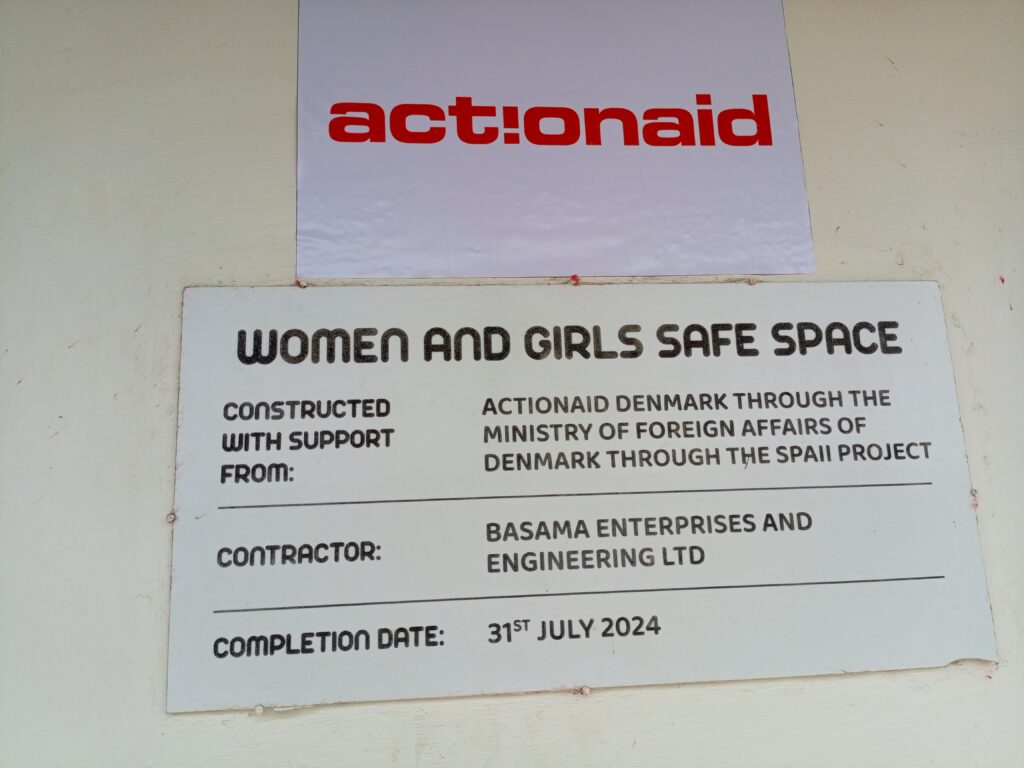
“Many of these women and girls have endured traumatic experiences — including witnessing violence, losing loved ones, or suffering displacement. This safe space offers psychosocial support, helping them cope with trauma, depression, and isolation. It’s designed as a secure and private area — even men are generally restricted from entering — to ensure a true environment of healing,” he added.
In a settlement of over 73,000 refugees, most of them women and children, the need for safe, empowering spaces is profound.
According to Mulikiriza Ismael, a Protection Officer with the Office of the Prime Minister, “This initiative is already transforming homes. One woman teaches another how to resolve conflict peacefully. One success story becomes a community movement.”
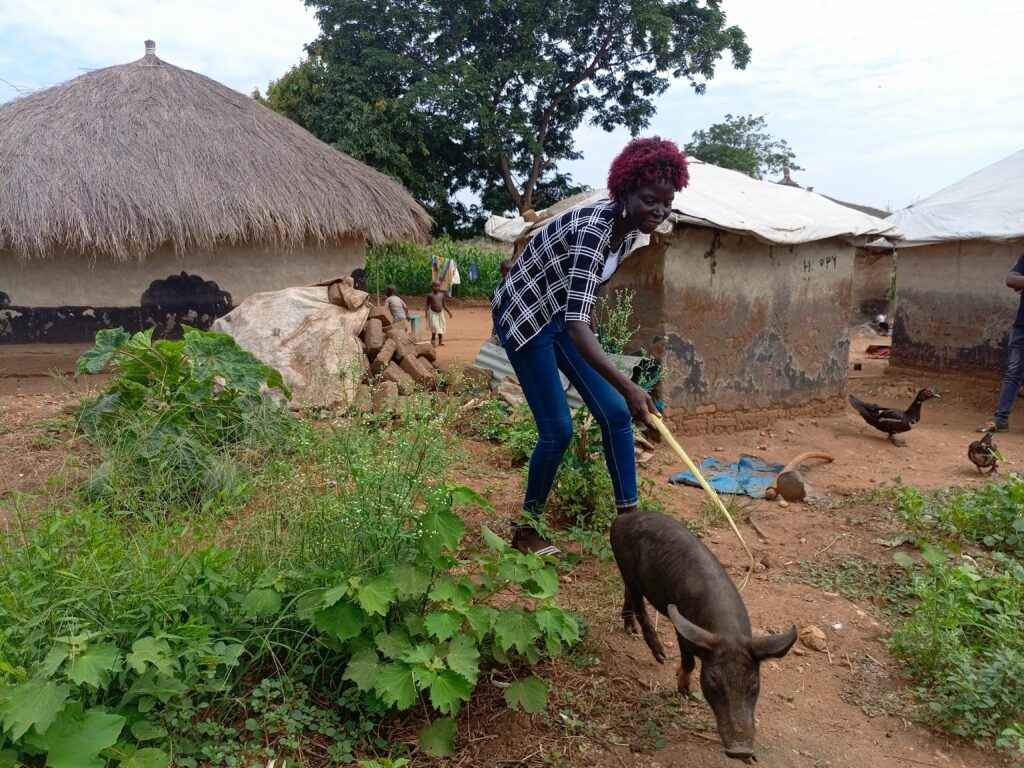
Healing in the Soil
Beyond therapy, ActionAid has integrated an agroecological centre within this space. Once women begin their healing journey, they are encouraged to engage in productive activities such as kitchen gardening and sustainable farming. This initiative not only empowers them economically but also plays a key role in reducing gender-based violence (GBV) in their homes.
The garden beds may seem small, but their impact is deep. Many households in the camp face economic hardship, and tensions often escalate when both partners lack income. But as women gain new skills and begin contributing to the household economy, men have started recognising and appreciating their efforts.
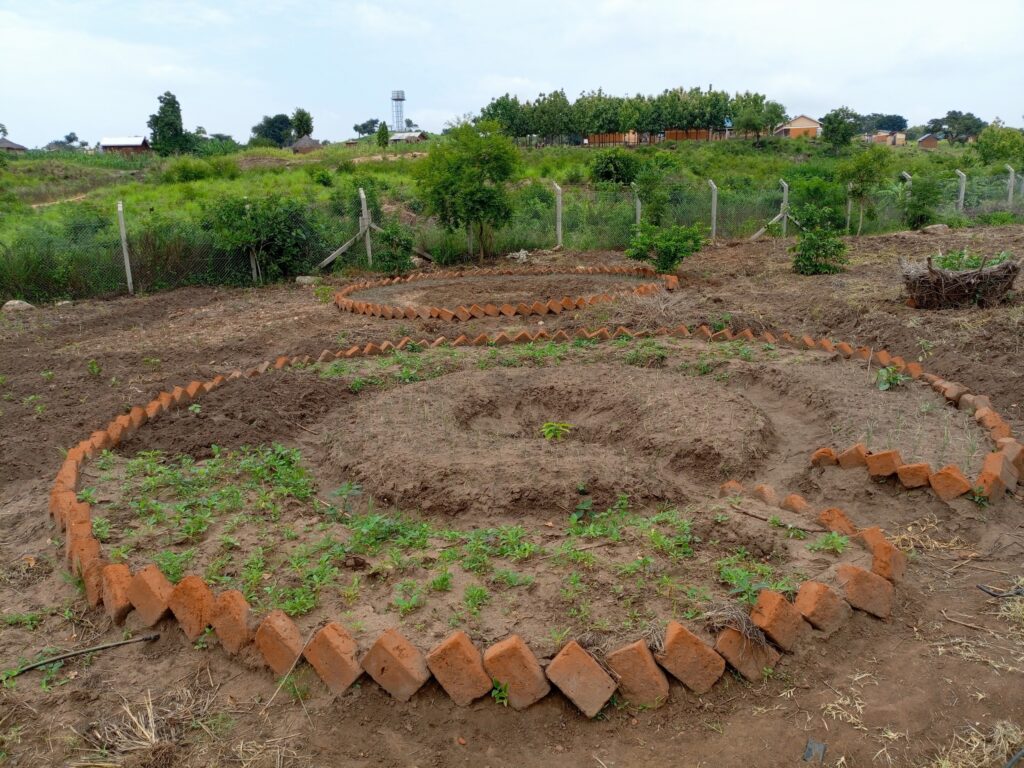
“Instead of spending UGX 5,000 on sweet potatoes, I grow them,” Suya says. “I save money. I feed my children. I even sell what’s extra.”
For women who once felt voiceless—whose lives were shaped by trauma and displacement, these gains represent much more than food or income. They symbolise choice, control, and confidence.
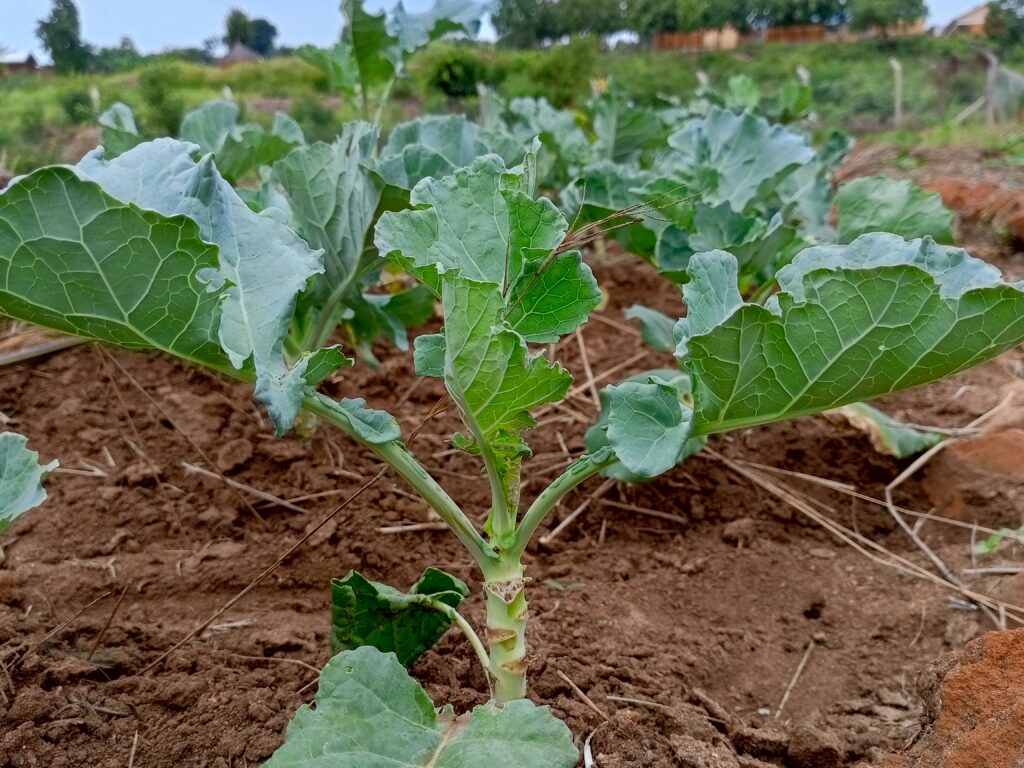
Apio Anna Goretti, Acting Deputy Secretary at ActionAid, underscored the link between food, income, and safety: “Most gender-based violence (GBV) cases we see are tied to economic stress. When women earn and eat from their efforts, they are less vulnerable — and more powerful.”
Both Suya and Tabu have no plans of returning to South Sudan anytime soon. “Here, I’ve become a woman who can stand,” Tabu says. “I thank ActionAid. Because of you, I am no longer broken. I have become a resilient woman.”
